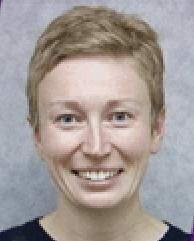
Regina Demina
Professor of Physics
PhD in Physics, Northeastern University, 1994
- Office Location
- 367 Bausch & Lomb Hall
- Telephone
- (585) 275-7357
- Web Address
- Website
Biography
Professor Demina received her BA in Physics (1985) and MS in Physics (1988) from Novosibirsk State University, and her PhD in Physics (1994) from Northeasern University. After a postdoctoral position at Fermilab, she joined Kansas State University as Assistant Professor of Physics in 1999. She joined the University of Rochester as Associate Professor in July of 2003, and promoted to Professor in 2007. Professor Demina was named a Department of Energy Outstanding Junior Investigator in 2001.
Research Overview
Professor Demina's research interests are in the fields of experimental high-energy physics and cosmology. She participated in the CDF and DZero experiments at Fermilab until 2011 and contributed to Top Quark Physics.
Our Energy Frontier group is engaged in analyzing data that represent the fruition of years of efforts toward construction of the Compact Muon Solenoid (CMS) detector at the Large Hadron Collider including studies of the heavy quarks, W and Z bosons, and searching for new physics such as supersymmetry. The group is also actively engaged in upgrading the detector for the High Luminosity LHC era that will significantly extend the discovery potential and allow exploration of the Higgs sector to its fullest.
These studies are now ongoing at the CMS experiment at the Large Hadron Collider at CERN, again focusing on studies of the top quark, W and Z bosons, and investigation of the Higgs boson and search for supersymmetric particles (Profs. Bodek, Demina, Garcia-Bellido). The group played a major role in the construction of the CMS hadron calorimeter (Bodek) as well as the construction of the silicon tracker (Demina), and is now working on that upgrade.
Particle astrophysics incorporates elements of astrophysics, particle physics, and cosmology. By observing very high energy cosmic rays, gamma rays, and neutrinos arriving at Earth, we hope to understand where these particles are accelerated and how the accelerators work. The extreme energies (> 1 TeV) and cosmologically large distances to the sources also make these particles important probes of interstellar and intergalactic space.
The Dark Energy Spectroscopic Instrument (DESI) experiment is performing dark energy measurements using baryon acoustic oscillations using data from the Mayall 4-meter telescope at Kitt Peak National Observatory (KPNO). The group is also studying the growth of large scale structure using high-throughput galaxy redshift surveys They are developing fast algorithms for the analysis of galaxy cluster statistics and the identification of voids. They study cosmic tomography using the Lyman-alpha forest and do searches for cosmologically significant transients (supernovae, kilonovae, and tidal disruption events) (Profs. BenZvi, Demina, Douglass).
Research Interests
- experimental elementary-particle physics
- cosmology
Selected Publications
- Tumasya, Armet et al, (CMS Collaboration) Measurement of differential t \bar t production cross sections in the full kinematic range using lepton+jets events from proton-proton collisions at \sqrt {s} = 13TeV Phys. Rev. D104, 092013 (2021) doi:10.1103/PhysRevD.104.09201
- Brown, Zachery and Mishtaku, Gebri and Demina, Regina, ConKer: An algrorithm for evaluating correlations of arbitrary order, Astron. Astrophys, 667, A129, (2022), doi: 10.1051/0004-6361/202141917
- CMS Collaboration, Measurements of polarization, spin correlations, and entanglement in top quark pairs using lepton+jets events from pp collisions at \sqrt{s}=13TeV, CMS-PAS-TOP-23-007, (2024)
- Adame, A.G., DESI collaboration, The Early Release of the Dark Energy Spectrscopic Instrument, Astron. J. 168, 2, (2024), doi: 10.3847/1538-3881/ad3217
- Adame, A.G., DESI collaboration, Validation of the Scientific Program for the Dark Energy Spectroscopic Instrument, Astron. J. 167, 2, (2024), doi: 10.3847/1538-3881/ad0b08
- Ravi, Nitya, and Douglass, Kelly A., and Demina, Regina, A Full Accounting of the Visible Mass in SDSS MaNGA Disk Galaxies, Astrophys. J. 967, 2, 2024, doi: 10.3847/1538-4357/ad36c2
- Demina, Regina and Landi, Gabriel, Locality in collider tests of Quantum Mechanics with top quark pairs, arXiv: 2407.15223 (2024)
